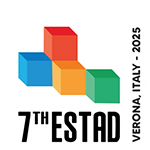Speaker
Description
The Ladle Furnace (LF) process is fundamental for refining steel before Continuous Casting (CC) and strongly affects some main mechanical features of the final semi-finished steel product. Ferroalloys, deoxidizers and slag formers are added to molten steel, while keeping its temperature within given boundaries through electricity-based heating systems. Several aspects, e.g. the electricity consumption and added materials, can be optimized by formulating adequate control strategies. Through a proper forecasting and optimization system it is also possible to decrease the number of measurements of steel chemical composition between additions.
The paper presents part of the work carried out within the European project entitle “Data and decentralized Artificial intelligence for a competitive and green European metallurgy industry” (ALCHIMIA – G.A. No 101070046), which aims at optimizing the steel recipe in the EAF-based route in terms of energy, scrap mix and added materials. A Decision Support System (DSS) is developed to provide LF operators with optimized control solutions and a better insight in the environmental impact of the production cycle. The DSS includes a digital twin of the LF that leverages the paradigm of Federated Learning for training an accurate neural network-based model. The digital twin exploits real-time data to forecast the final temperature and chemical composition of molten steel before CC, and is at the core of the optimization system that calculates the optimal LF operation. The optimization system is based on evolutionary algorithms to minimize an objective function comprising economic costs and environmental impacts, while satisfying production constraints. The environmental impacts are calculated through a Life Cycle Assessment-based methodology, focusing on the main energy and material flows of each specific heat. The DSS comes equipped with a graphical user interface helping supporting users’ interaction with the developed tools.
